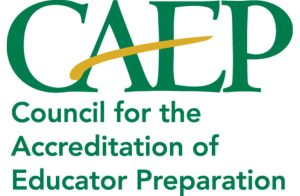What grade levels can I obtain certification in?
- Elementary (Birth – 6) certification – also referred to as early childhood and childhood education, and primary/junior grades. Upon completion of the program, students will hold a master of science in education degree.
- Secondary (5 – 12) certification – also referred to as middle childhood and adolescence education, and intermediate/senior grades. Upon completion of the program, students will hold a master of science in education degree.
When can I start the program?
Niagara University offers three entry points: Summer (May), Spring (January), or Fall (August).
How long is the program?
The program requires at least 39 credit hours and takes 3 semesters to complete. The program can be completed in one calendar year with a summer start. Students who begin in the fall or spring can complete the program in 15 months.
Bridge courses are available for students seeking certification in other countries.
Are all courses offered online?
Yes, the program is 100% online. Most courses will be synchronous with designated meeting times. Students will join a virtual meeting with their professors and classmates on the scheduled meeting dates and times. Students are expected to be online the entire time with their camera on and ready to actively participate in class. Some courses are offered asynchronously, which means there is no designated meeting time for the class. Assignments and exams are to be completed according to the syllabus provided by the professor.
How many days per week is the program?
- Courses are scheduled 2-3 days per week. You must also factor in time for your field experiences.
- The final semester includes the student-teaching placement / practicum and requires a full-time commitment.
I’ve heard the program at Niagara University is a cohort-based program. What is a cohort-based program?
Cohort-based programs are programs in which candidates attend courses and field experiences as a specific group earning their degrees together in a professional learning community. A cohort approach takes a diverse group of students and builds them into a community of teacher-learners by structuring their class schedules together and by teaching them in a way that emphasizes collegiality. The learning of each individual will assist the learning of others; the accomplishments of one should help all. This adds to the peer support that candidates experience within their group while at Niagara University, in field experiences, student teaching and later as alumni.
The model is based on a set of principles known as constructivism in which the program is built on the sound research base of cooperative learning and is consistent with recent findings on successful professional growth projects. It provides a laboratory of meaningful interaction and offers the opportunity to develop professional dispositions and leadership skills on a daily basis. Further, the program utilizes team strategies drawn from the business and athletic worlds and fuses them into a collaborative school faculty. Candidates and professors alike find cohort-based programs to be a positive and dynamic learning experience.
Do I get to pick my schedule?
Since the program is cohort-based, your courses assigned. You may have some flexibility in sections, depending on your major.
Can I complete the program as a part-time student?
Yes, we offer part-time options. Students can take anywhere from 1-4 courses as a part-time student. The program advisor works individually with part-time students to create a schedule that fits their needs.
What is the field experience requirement of the program?
Field experiences are designed to provide practical experience in various types of schools, learning environments, grade levels (as they apply to the certificate), and in the diversity of the student population in classrooms. The following field experiences are embedded into the program.
- Impact Placement – (75 hours) Early field experience that give students the opportunity to experience the classroom from a teacher’s perspective.
- Teaching Assistantship Experience – (75 hours) These placements involve teacher candidates working with local students.
- Student Teaching Practicum – (Two 7-week (or one 14-week) full-time placement) Each placement will address a different grade level to provide students with a variety of experiences. The Field Experience Office facilitates placement and works with numerous school districts and boards locally, nationally and internationally.
Policies & procedures for field experience at the graduate level
I’ve heard that Niagara University’s program is accredited by CAEP, what does that mean?
Professional accreditation of preparatory programs is the bedrock upon which all professions (e.g., architecture, engineering, medicine, law) have built their reputations. It assures that those entering the respective field have been suitably prepared to practice through assimilation of a body of knowledge and pre-service practice in the profession. Accreditation of schools of education indicates that the school underwent rigorous external review by professionals, that performance of a teacher candidate in the program has been thoroughly assessed before he or she is recommended for licensure, and that programs meet standards set by the teaching profession at large.
CAEP advances excellence in educator preparation through evidence-based accreditation that assures quality and supports continuous improvement to strengthen P-12 student learning. CAEP determines which schools, colleges, and departments of education meet rigorous national standards in preparing teachers and other school specialists for the classroom.
What are the virtual learning expectations?
The Teacher Education Department outlines Online Learning Expectations that students acknowledge before beginning the program.
What are the professional disposition expectations?
The Teacher Education Department outlines the following professional dispositions for teacher candidates.
What NYS certification exams are students (both US & Canadian) required to take and pass for certification?
- Educating All Students Test (EAS)
- Content Specialty Test (CST)
- Secondary (Intermediate/Senior) candidates take the CST subject test in concentration area (1st teachable)
- US Elementary candidates must take both the Birth-2 Multi-Subject CST and 1-6 Multi-Subject CST
- Ontario Elementary (Primary/Junior) candidates only take the 1-6 Multi-Subject CST
- New York State Certification Website










